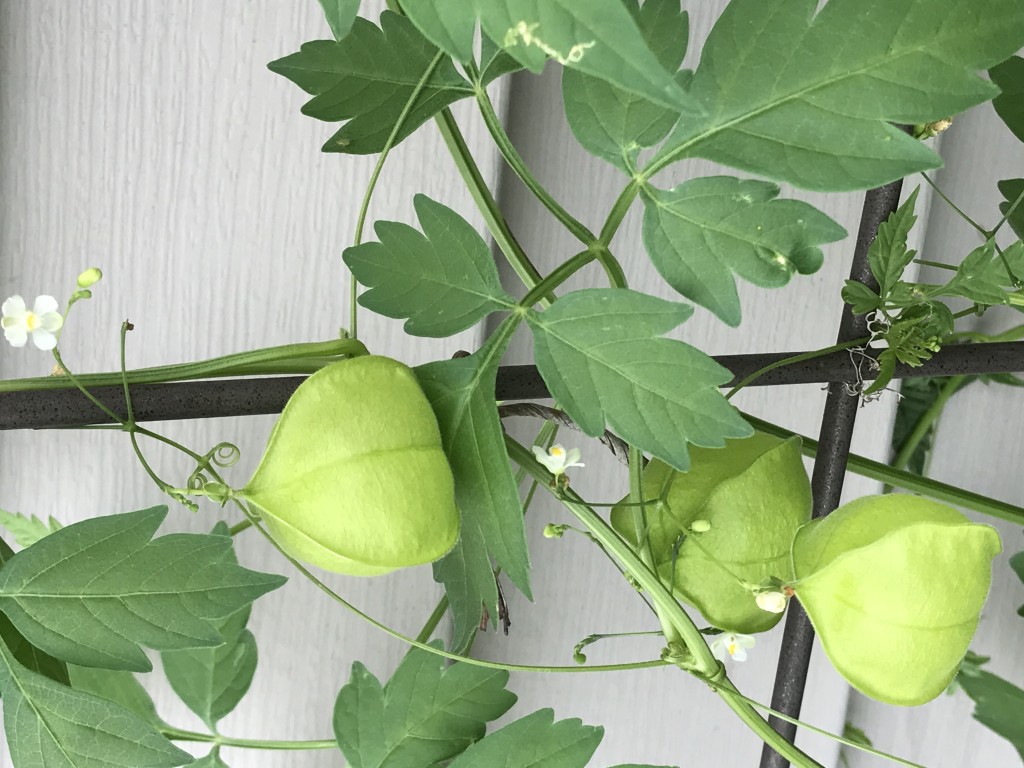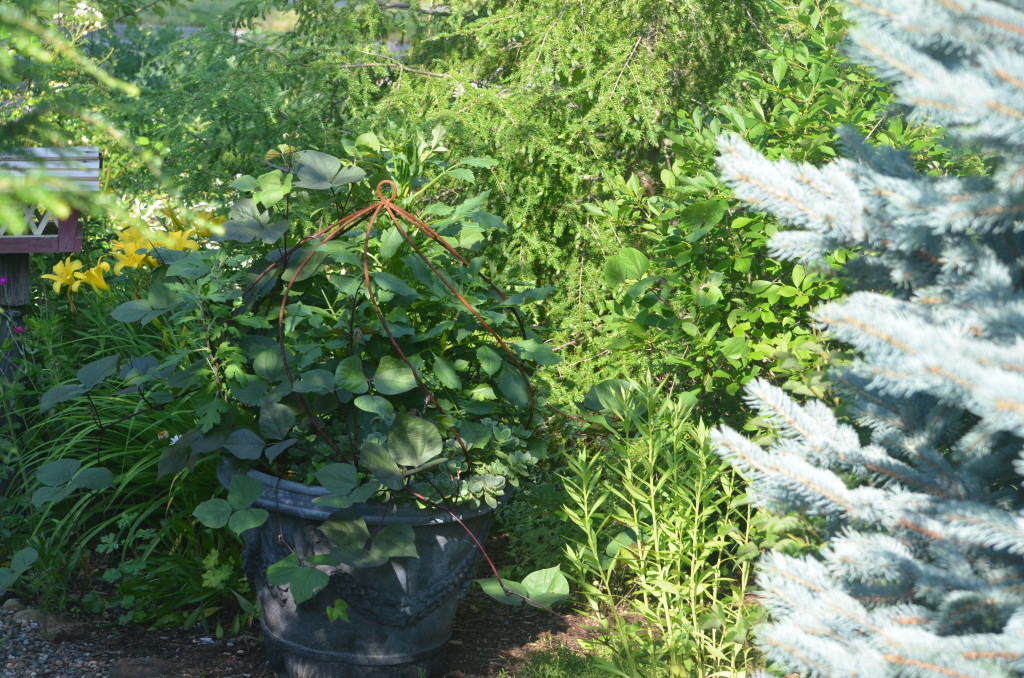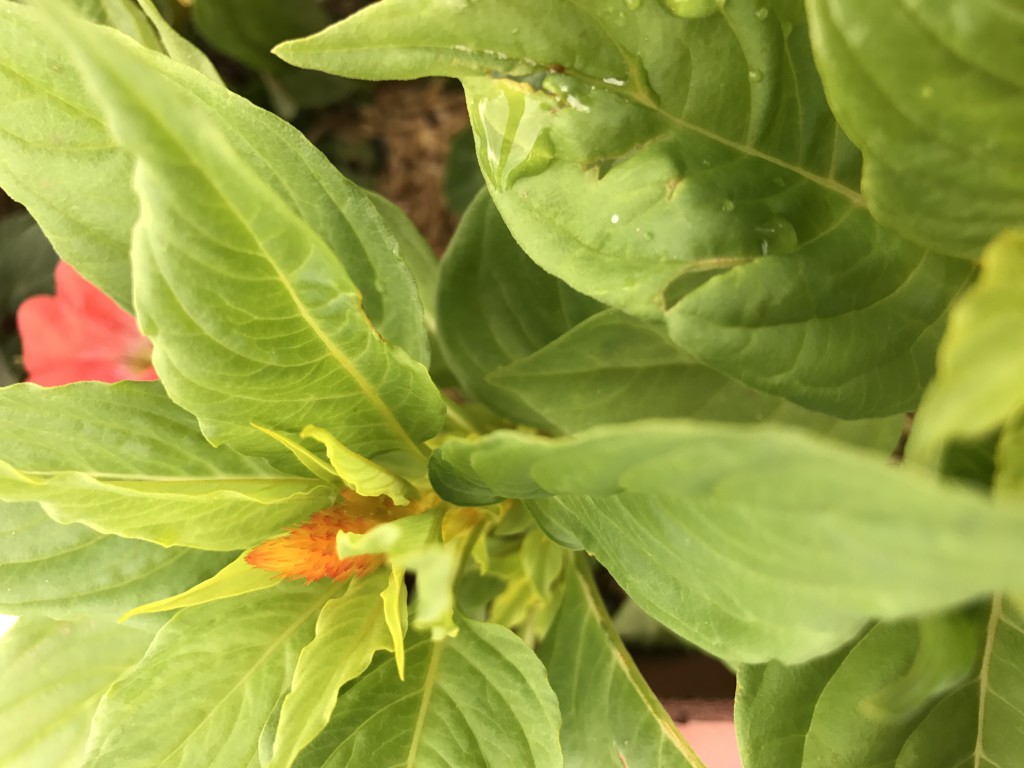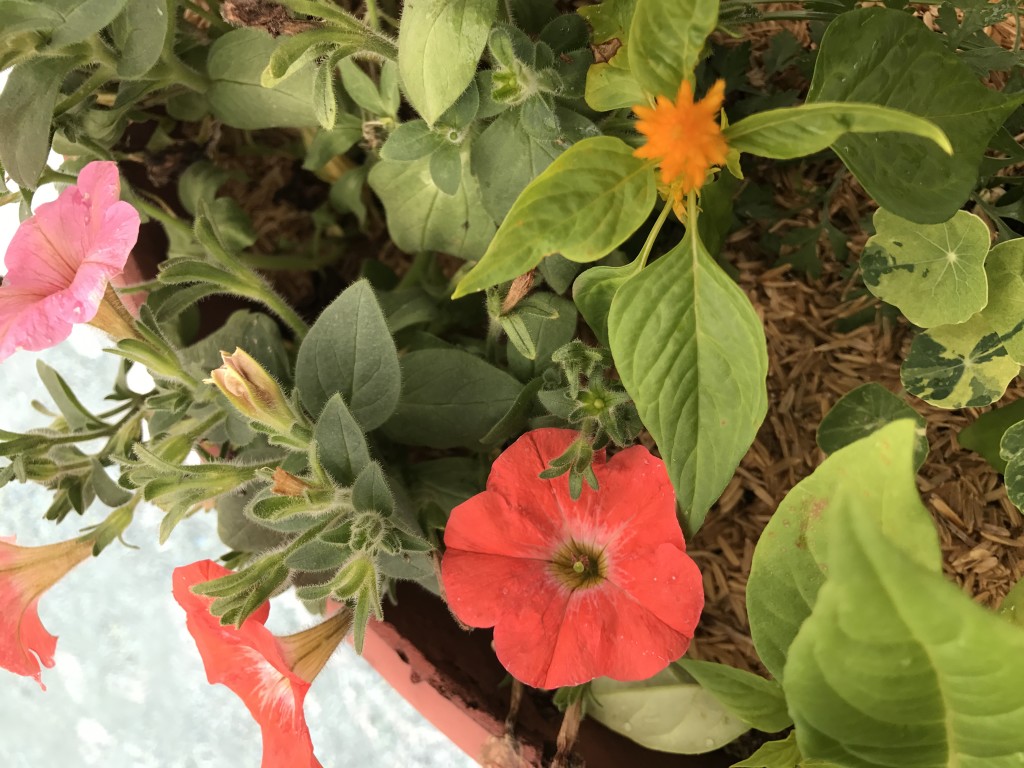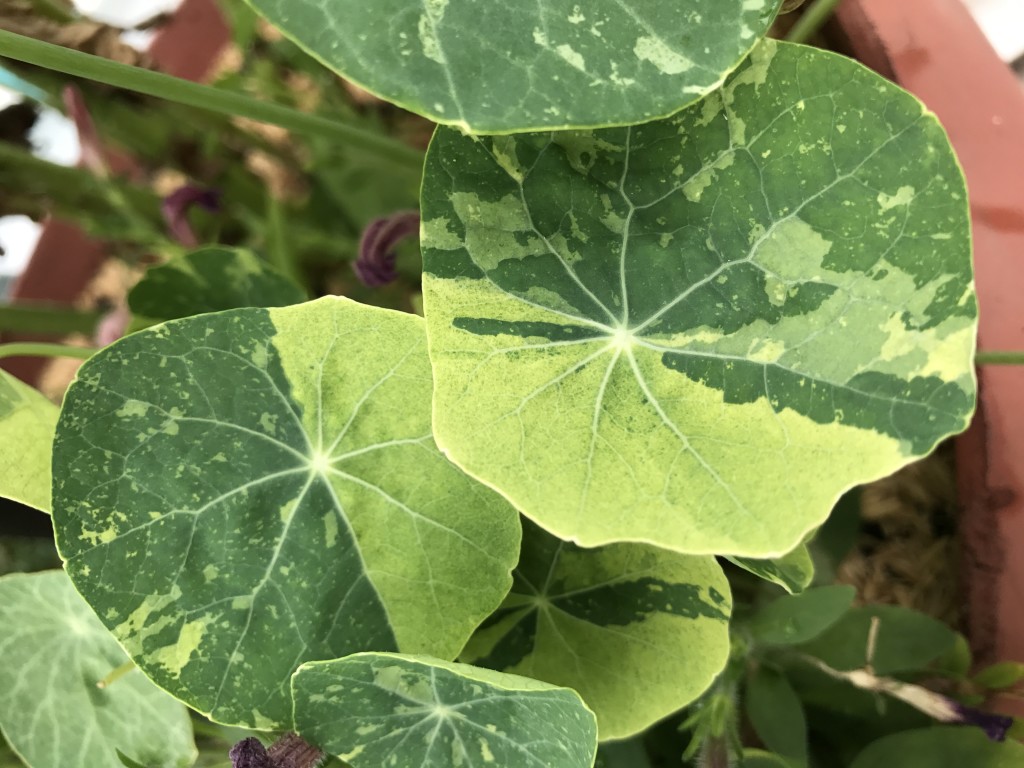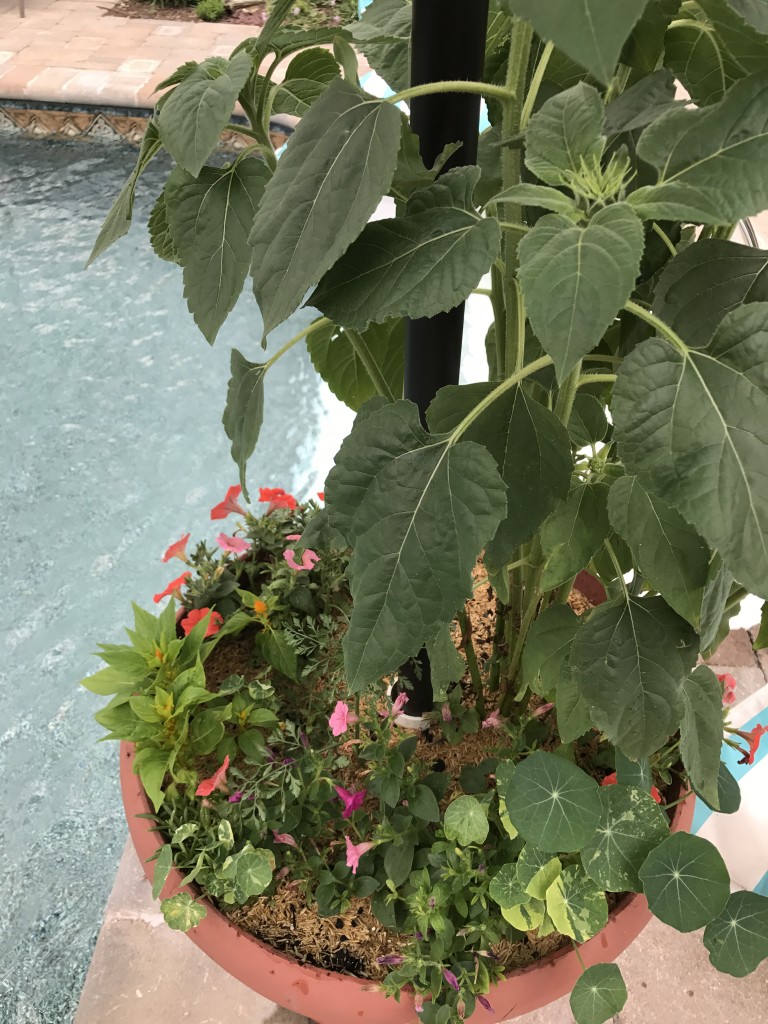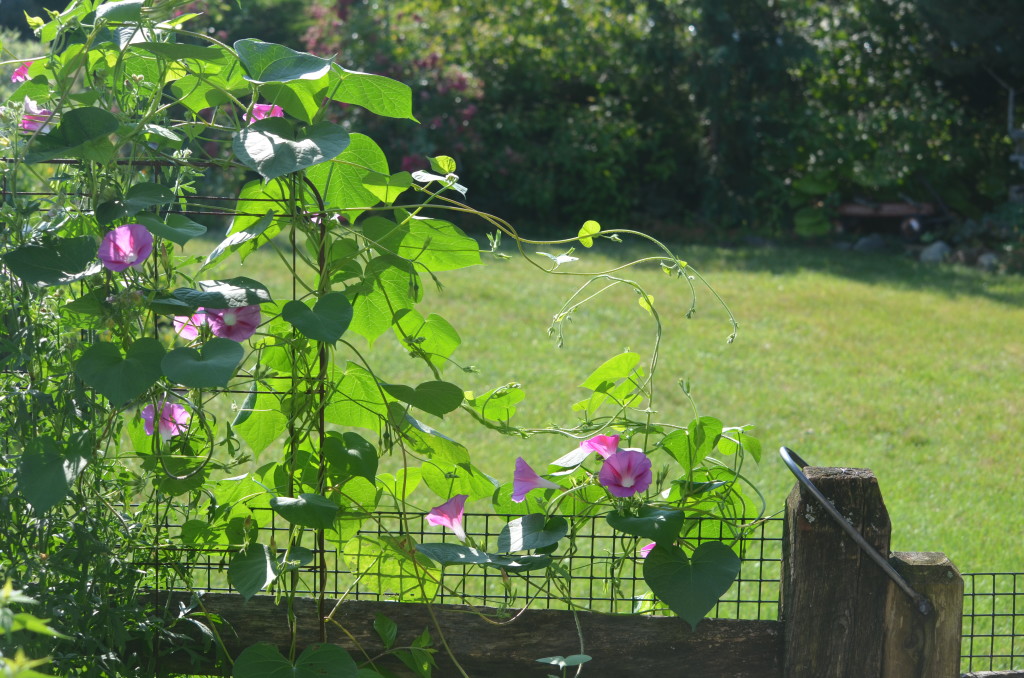 As the season goes on ( and boy is it ever a glorious one thanks to Mother Nature being generous with the water works) each day I stroll around eagerly awaiting to see what has come into bloom around the next corner. We are in prime summertime; coneflowers, black eyed susans, garden phlox, hydrangeas and many a treasured and sought after plant ($$$$) are sure strutting their stuff,and while I love to see rare clematis and well grown roses, if is the cheap thrills that get me the most.
As the season goes on ( and boy is it ever a glorious one thanks to Mother Nature being generous with the water works) each day I stroll around eagerly awaiting to see what has come into bloom around the next corner. We are in prime summertime; coneflowers, black eyed susans, garden phlox, hydrangeas and many a treasured and sought after plant ($$$$) are sure strutting their stuff,and while I love to see rare clematis and well grown roses, if is the cheap thrills that get me the most.
There is such a sense of satisfaction knowing you can create a beautiful landscape on a shoestring budget if you just are a little prepared ahead of time in a few ways.
Fist and foremost buy seeds of things that are easy to both start from seed and save seed from when they are done blooming, things like morning glories, love in a puff vine, hyacinth bean vine, nasturtiums, zinnias, amaranth and cosmos. Dahlia tubers also fall under this heading even though it is a tuber instead of seed you save. It may be a teeny bit of work but worth every bit of effort in the end when you can fill loads of containers and empty spaces in the garden for next to nothing. Almost all of my annual vines are now started from seed I have saved , initial cost was minimal, and now it is only my time that gets spent as I watch for w week or two and gather the seeds to store over winter.
Nasturtium seeds form quickly as the flowers fade and can be collected as soon as you see them big enough , and before the birds get to them.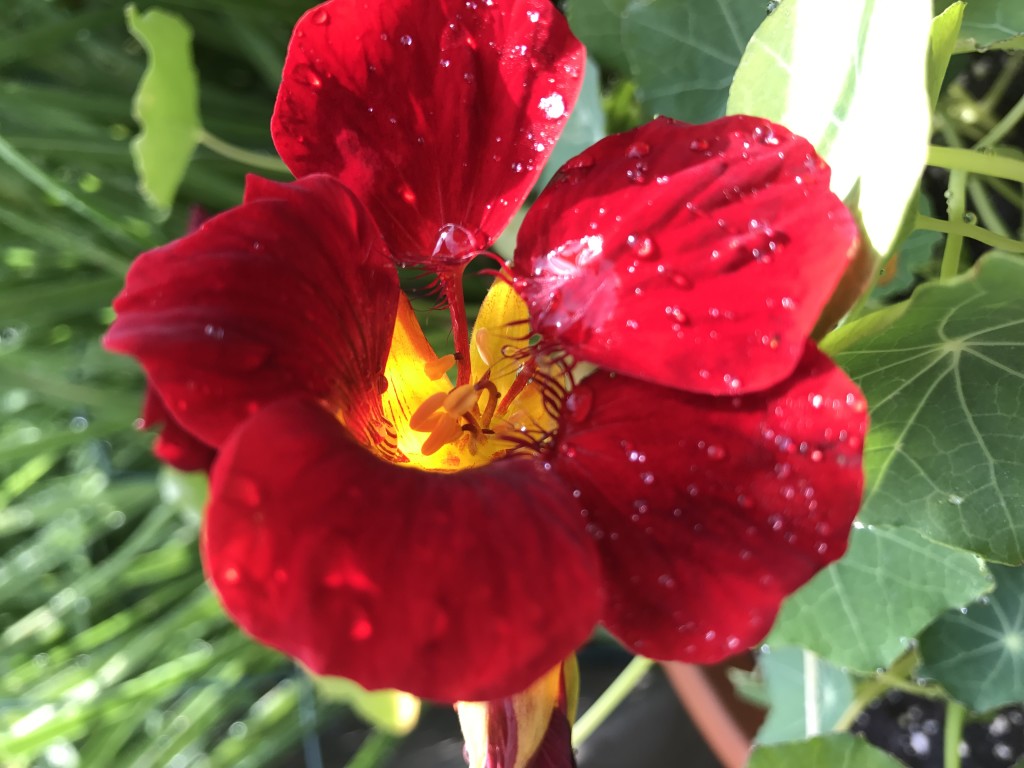
Hyacinth bean forms cool electric purple pods and these get left on the vine until brown and then dry and then take the seeds out of the pod and store .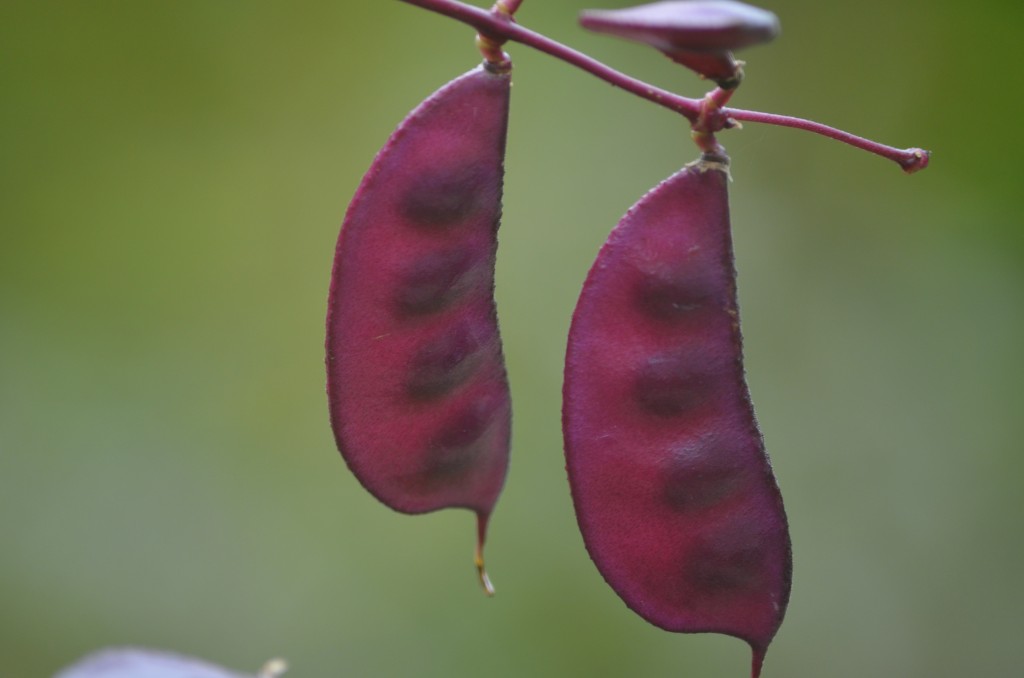
Love in a puff halicacabum cardiospermum makes these cool puffs after flowering and the seeds are in them, but you can just store the puffs after they are brown
I use little glassine envelopes for all most but not all of my seeds. For things like amaranth and even zinnias you can just pop the whole flower head in a paper lunch bag to deal with later in the winter when you are bored and feel like separating the seeds from all the chaff. Just make sure they are dry before placing them in the bag. With the amaranth a quick vigorous shake of the bag in the spring will send the seeds to the bottom of the bag leaving the rest of the flower stalk intact and you just take out and pitch the stalk and pour out the seeds.


I have several large containers that are filled using many of these saved seeds .the first key to success is a large pot + less watering+ greater germination and survival rates. Because i save way more seed than I could ever use, I sow heavily and then thin out the seedlings them later if necessary .
This pot has a mum and a sedum that live in it year round and then I pop in seeds after all chance of frost has passed. This year it was actually very late as I used hyacinth bean seeds which I never plant outside until June 1. I also add a single dahlia tuber in there and by early July the pot is full and fresh looking and will be flowering within the month lasting through frost. Someone on my garden tour this June happened to be standing next to me and the pot when it was all just starting to grow , and commented “I see what you are doing here, how clever! ”
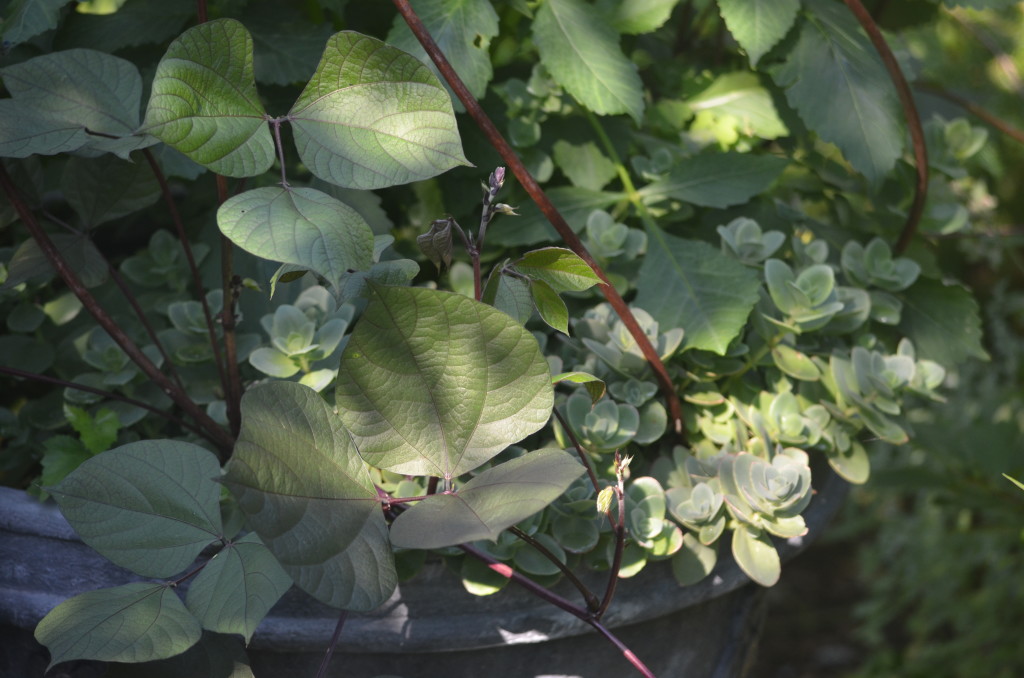 Another pot nearby gets morning glories every year and this year I added the hyacinth bean as well.Within a week with this heat (finally!) it will be outrageously full and blooming
Another pot nearby gets morning glories every year and this year I added the hyacinth bean as well.Within a week with this heat (finally!) it will be outrageously full and blooming 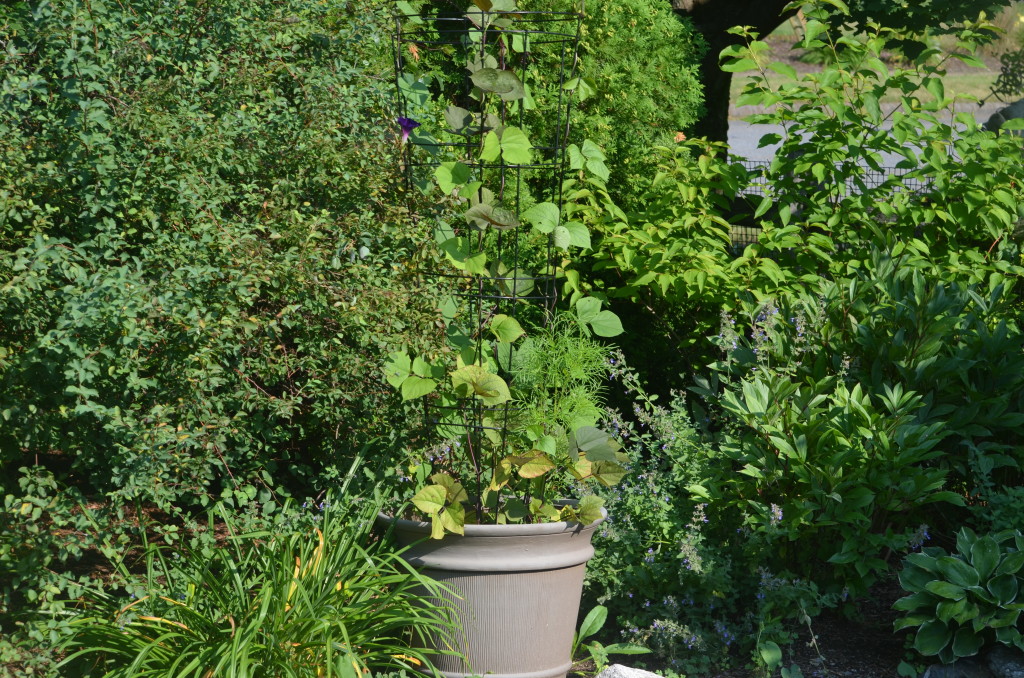
You can read more about my use of annual vines for late season interest here
The two large pots on the pool area are even easier. These are quite large and are made to hold the umbrellas. (you can see what I did here) . They are heavy and I actually never change the soil in them partially because of the cement , but mostly because the petunias that I planted in it the first year they were made ( probably 6 years ago) seed readily and come back for free. I will admit it takes time for the seedlings to get to any reasonable size so the pots initially remained quite empty until the middle of July but then I started planting lettuce seed in them very early in the season, Now I grow lettuce in one of them , harvest lettuce all spring , and just as it is starting to get too warm for the lettuce, the petunias are of a decent enough size to take over and the lettuce gets ripped out while they carry on until frost.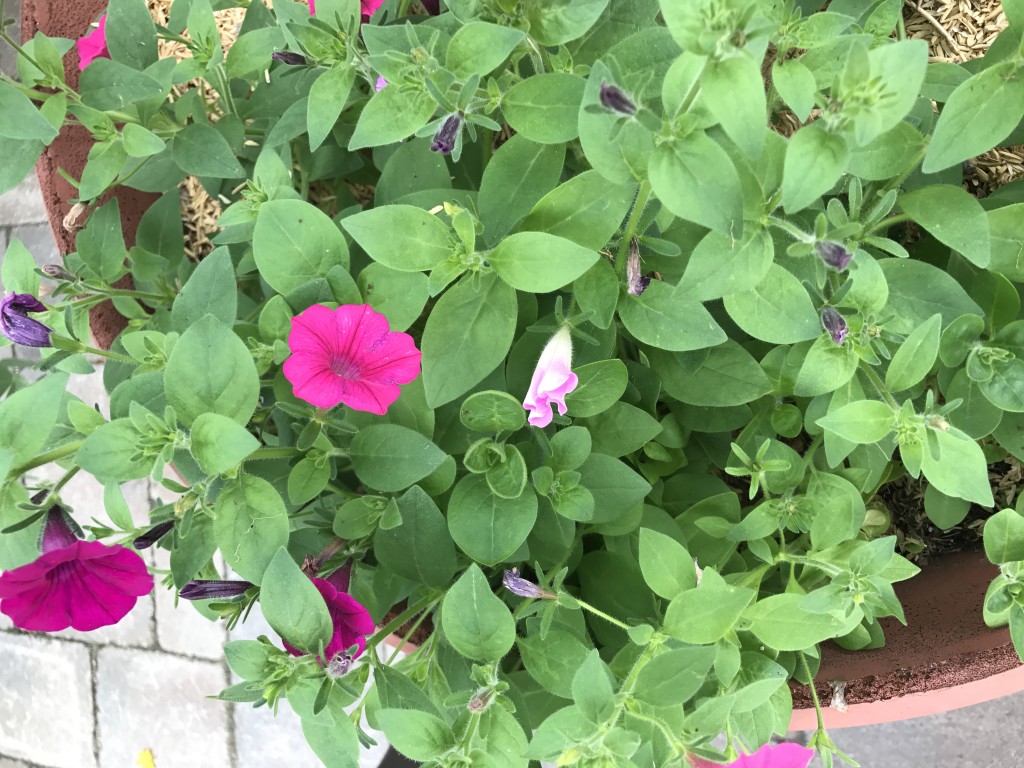
In the second one I actually get celosia to self seed as well, so i just pop in few seeds of nasturtiums and call it a day. this year the chipmunks planted sunflowers in there and although I do not like the look of it I will let them stay, cut the sunflowers for inside once they are flowering , and then move some of the other plants to fill in the gap. You may notice that the petunia growing in here is one of those “illegal ” orange ones. This is a very long but very interesting story you can read about here if you like in an article titled “How the transgenic petunia carnage of 2017 began”, but suffice it to say that petunias do not contain a gene for expressing the color orange so some wacky engineering was going on for them to exist. I actually bought one plant for a dollar to tuck in this pot very late in the season and I was very surprised to see it come back.
Which brings me to my second way you need to be prepared, and that is learn what seedlings of your favorite annuals look like and be aware when weeding what you are pulling. Lots of annuals leave seeds that will happily overwinter in some years, sometimes they can get annoying like Morning Glory sprouting all over the place but many times it is delightful to find free plants to either leave growing where they sprouted or lift and move elsewhere. This little nasturtium seeded itself here, 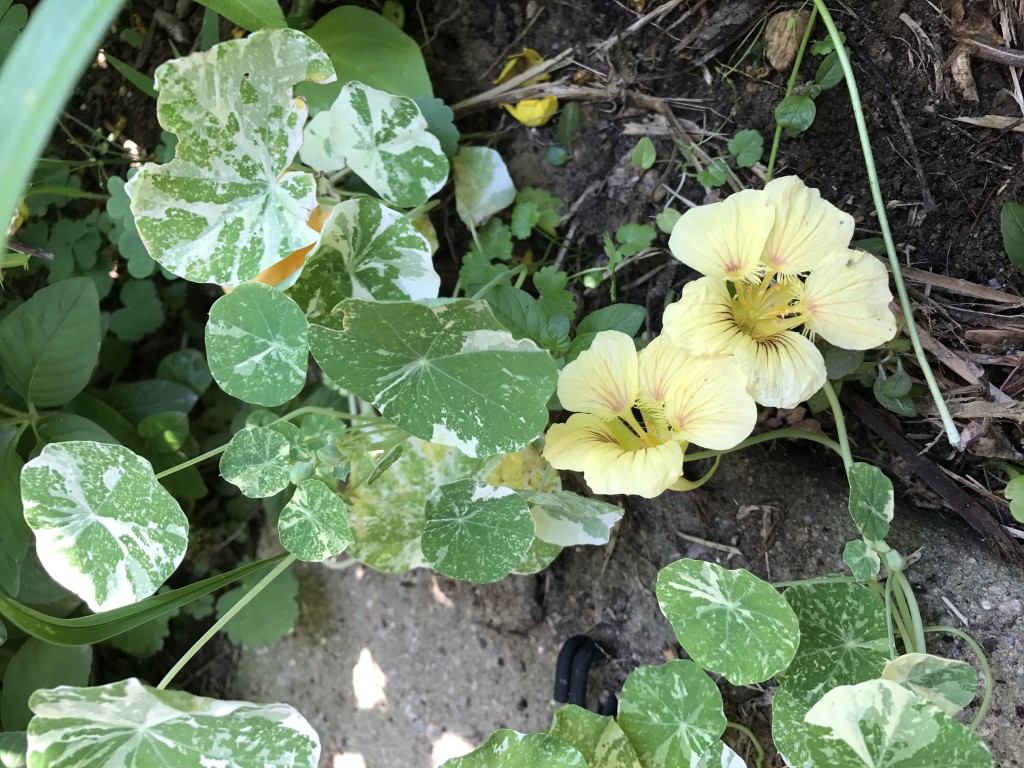 and every petunia I grow was a self planted seedling.
and every petunia I grow was a self planted seedling.
Any way to save a few dollars helps and makes it so I can splurge on the cool new bulbs I have been eyeing!
